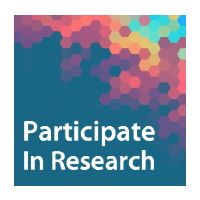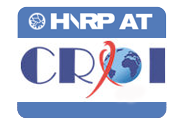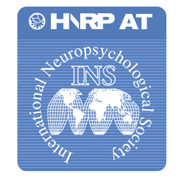Welcome to the HNRP
The mission of the HIV Neurobehavioral Research Program (HNRP) is to initiate and promote translational NeuroAIDS research through the development, coordination and realization of multi-disciplinary studies.

 The mission of the HIV Neurobehavioral Research Center (HNRC) is to increase our understanding of how HIV and other diseases affect the human nervous system. The Center is supported by public funding from the National Institutes of Health (NIH) (NIMH Award Number P30MH062512). The HNRC conducts local, national, and international research devoted to advancing our knowledge of the prevention, diagnosis and treatment of HIV-related diseases as they affect the brain and nervous system, and result in impairment of everyday functioning.
The mission of the HIV Neurobehavioral Research Center (HNRC) is to increase our understanding of how HIV and other diseases affect the human nervous system. The Center is supported by public funding from the National Institutes of Health (NIH) (NIMH Award Number P30MH062512). The HNRC conducts local, national, and international research devoted to advancing our knowledge of the prevention, diagnosis and treatment of HIV-related diseases as they affect the brain and nervous system, and result in impairment of everyday functioning.
![]() The Translational Methamphetamine AIDS Research Center (TMARC) is supported by public funding from the National Institutes of Health (NIH) and National Insititute on Drug Abuse (NIDA) (NIH/NIDA Award Number P50DA026306) to provide scientific leadership, technical support, and opportunities for training to coalesce the efforts of an interdisciplinary group of investigators to elucidate the combined effects of methamphetamine and HIV infection on the central nervous system.
The Translational Methamphetamine AIDS Research Center (TMARC) is supported by public funding from the National Institutes of Health (NIH) and National Insititute on Drug Abuse (NIDA) (NIH/NIDA Award Number P50DA026306) to provide scientific leadership, technical support, and opportunities for training to coalesce the efforts of an interdisciplinary group of investigators to elucidate the combined effects of methamphetamine and HIV infection on the central nervous system.
 Established in 2000, the UC Center for Medicinal Cannabis Research (CMCR) has been at the forefront of advancing science and policy relating to the potential clinical benefits and limitations of cannabis and cannabinoids as medicine. With support from the California State Legislature, the CMCR initiated the first therapeutic studies using smoked cannabis in over 20 years, completed key studies regarding the short-term benefits of cannabis for the treatment of neuropathic pain and spasticity, and has an active, ongoing program of research. Over the years the Center has established close and productive relationships with key Federal and State agencies, has significantly impacted policy, and remains a national leader in the field.
Established in 2000, the UC Center for Medicinal Cannabis Research (CMCR) has been at the forefront of advancing science and policy relating to the potential clinical benefits and limitations of cannabis and cannabinoids as medicine. With support from the California State Legislature, the CMCR initiated the first therapeutic studies using smoked cannabis in over 20 years, completed key studies regarding the short-term benefits of cannabis for the treatment of neuropathic pain and spasticity, and has an active, ongoing program of research. Over the years the Center has established close and productive relationships with key Federal and State agencies, has significantly impacted policy, and remains a national leader in the field.
 The CNS HIV Anti-Retroviral Therapy Effects Research (CHARTER) study was first funded in September 2002 in response to NIMH RFA 00-AI-0005 to explore the changing presentation of HIV neurological complications in the context of emerging antiviral treatments such as highly active antiretroviral therapy (HAART). Public funding included grants from the National Institute of Health (NIH), the National Institute of Mental Health (NIMH) and the National Institute of Neurological Disorders and Stroke (NINDS) via the CHARTER Extension (NIH/NIMH/NINDS Award Number HHSN271201000036C) and CHARTER as a Resource (NIH/NIMH/NINDS Award Number HHSN271201000030C). CHARTER’s study aims were to determine how central and peripheral nervous system complications of HIV are affected by different histories and regimens of antiretroviral therapy (ART). Participants received comprehensive neuromedical, neurocognitive, and laboratory examinations, with a subset undergoing host/viral genetic characterization and neuroimaging. In order to have a broad representation of participant characteristics, CHARTER was conducted at six performance sites nationally whose activities were coordinated by UCSD, the principal grantee institution, which included several technical, scientific, and administrative components to guide the work.
The CNS HIV Anti-Retroviral Therapy Effects Research (CHARTER) study was first funded in September 2002 in response to NIMH RFA 00-AI-0005 to explore the changing presentation of HIV neurological complications in the context of emerging antiviral treatments such as highly active antiretroviral therapy (HAART). Public funding included grants from the National Institute of Health (NIH), the National Institute of Mental Health (NIMH) and the National Institute of Neurological Disorders and Stroke (NINDS) via the CHARTER Extension (NIH/NIMH/NINDS Award Number HHSN271201000036C) and CHARTER as a Resource (NIH/NIMH/NINDS Award Number HHSN271201000030C). CHARTER’s study aims were to determine how central and peripheral nervous system complications of HIV are affected by different histories and regimens of antiretroviral therapy (ART). Participants received comprehensive neuromedical, neurocognitive, and laboratory examinations, with a subset undergoing host/viral genetic characterization and neuroimaging. In order to have a broad representation of participant characteristics, CHARTER was conducted at six performance sites nationally whose activities were coordinated by UCSD, the principal grantee institution, which included several technical, scientific, and administrative components to guide the work.
 The California NeuroHIV Tissue Network (CNTN) is a research resource based at the University of California, San Diego, sponsored by the U.S. National Institute of Mental health (NIMH) and the National Institutes of Health (NIH) (NIH Contract 75N95023C00014). CNTN acquires and makes available well-characterized tissues from individuals who have Central Nervous System involvement with Human Immunodeficiency Virus (HIV).
The California NeuroHIV Tissue Network (CNTN) is a research resource based at the University of California, San Diego, sponsored by the U.S. National Institute of Mental health (NIMH) and the National Institutes of Health (NIH) (NIH Contract 75N95023C00014). CNTN acquires and makes available well-characterized tissues from individuals who have Central Nervous System involvement with Human Immunodeficiency Virus (HIV).










